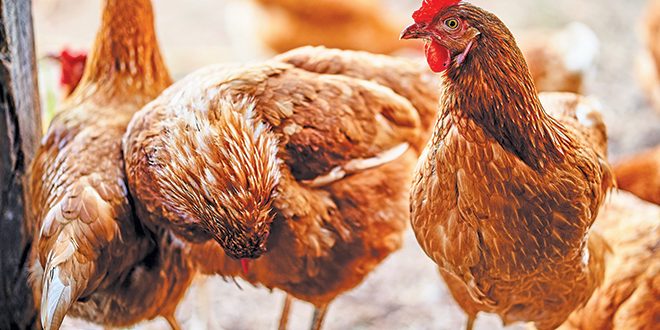On July 31 last year, birds tested positive for avian influenza on a Golden Plains free range egg farm. Over the following four weeks, a further five farms in Golden Plains, East Gippsland and Gannawarra Shire tested positive. In total, three strains of avian influenza were found on six Victorian poultry farms, infecting three bird species – three egg farms with highly pathogenic H7N7 avian influenza, two turkey farms with low pathogenic H5N2 avian influenza and one emu farm diagnosed with low pathogenic H7N6 avian influenza.
One of the farms, Longview Emu Farm near Kerang, was the last to test positive on August 25 and lost 5100 birds as a result. After learning valuable lessons, the farm introduced enhanced biosecurity methods to prevent future outbreaks, including the use of footbaths, separate vehicles for different areas on the property and building a new facility for chick rearing.
Benefiting from the biosecurity lessons learnt during last year’s avian influenza outbreak – the largest experienced in Australia – Victorian poultry are avian influenza free thanks to the combined efforts of stakeholders, community and emergency response teams. With the potential to decimate the industry, and the prospect of transmission to humans, the outbreak was quickly controlled.
The Victorian Minister for Agriculture Mary-Anne Thomas said, “The response of farmers, businesses, local communities, scientists and emergency personnel to the outbreak was sensational – it meant we could eradicate avian influenza from poultry flocks in Victoria.”
“We must remain vigilant to minimise the risk of emergency animal and plant diseases in Victoria and protect our agriculture and environment from the impacts of pests and diseases,” Ms Thomas said.
Australia was declared free from avian influenza on February 26, 2021, with about 1400 observational visits and 2700 surveillance texts initiated to achieve the status. To minimise the risk of additional birds testing positive in the Golden Plains Shire, a ‘housing order’ was introduced as part of the response – an Australian first. The order required all domestic poultry to be housed – reducing the risk of interaction with wild birds and further cases developing.
To assess the status of the avian influenza outbreak, 21,650 samples were analysed by diagnostics and research laboratories at Agriculture Victoria’s bioscience laboratory AgriBio, assisted by CSIRO’s Australian Centre for Disease Preparedness. For more information on avian influenza in Victoria, visit agriculture.vic.gov.au

